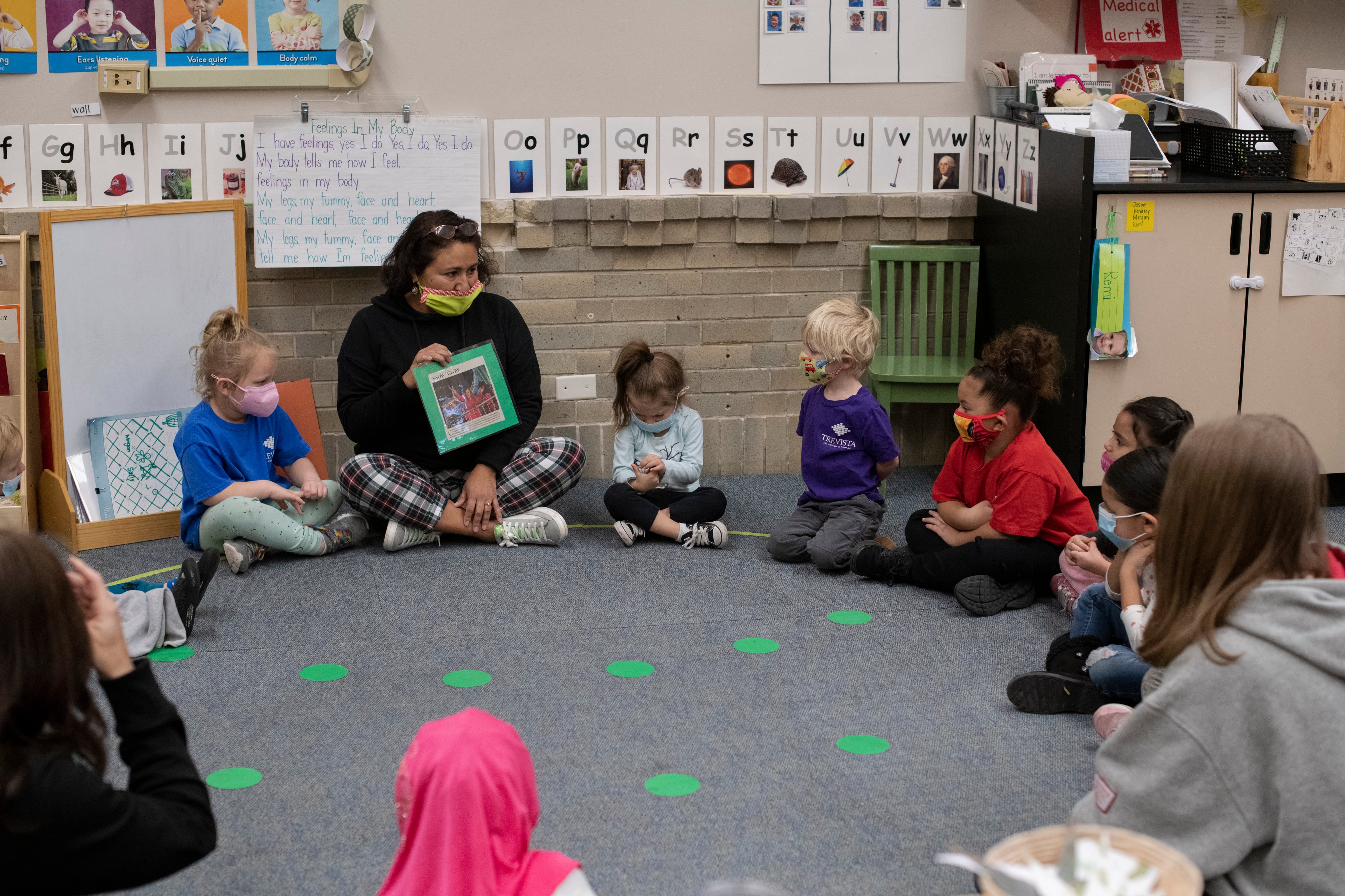All 4-year-olds who enroll in Colorado’s free preschool program next fall could be eligible for at least 15 hours a week of tuition-free classes, and some students could be eligible for double that if Colorado’s early childhood chief approves a new proposal next week.
Previously, state leaders had promised families only 10 hours of preschool a week — an amount many worried wouldn’t do much to help working parents who need longer stretches of care for their children. Besides upping the base hours, the latest proposal also gives a sizable subset of 4-year-old preschoolers — those from lower-income families, who are dual language learners, or who have disabilities, for example — 30 hours a week of preschool.
“We’re very excited about the opportunity there to see all children afforded an opportunity for half-day preschool programming, and [for] those children who need those extra supports the most, to get them to full-day preschool programming,” said M. Michael Cooke, the state’s early childhood transition director during a meeting with county officials Wednesday morning.
The proposed rules, which also include detailed information on how preschool funding will be parceled out, represent the latest step in the state’s flurry of preparations for the launch of universal preschool next fall. Funded in part with a voter-approved nicotine tax, the new program will replace the state’s smaller current preschool program and give children access to tuition-free spots in public school classrooms, private preschools, and home-based settings.
A state advisory committee will review the proposed rules Thursday afternoon and a public comment session will be held Monday. Lisa Roy, executive director of the Colorado Department of Early Childhood, then will decide whether to approve the rules. It’s possible she could make changes based on the committee’s recommendations or her own judgment.
The state also revealed this week how much it will pay providers for each preschooler they enroll next fall. For students who attend 15 hours a week, it will be an average of $6,040 a year and for students who attend 30 hours a week it will be $10,646 a year. (Some 3-year-old preschoolers will get 10 hours a week under the program and providers will get $4,834 a year for them.)
Those dollar amounts, which will vary by location, are derived from an elaborate formula that takes into account factors such as regional cost of living, staff costs, county poverty rates, and costs associated with rural settings.
“We’re very pleased with where this came out,” Cooke said. “We think this is a win for families and for providers.”
One of the big questions about the formula’s payments is whether they will enable providers to pay preschool staff a living wage, as state leaders promised last winter. Currently, some preschool teachers, particularly those who work in private settings, make so little they qualify for public assistance.
In Colorado, the median preschool teacher wage is around $15.25 an hour.
The proposed rates are higher than what preschool providers would have received if the rates were tied to the K-12 school finance formula.
The proposed full-time average of $10,646 per preschooler is about $1,000 more than what schools get paid for each K-12 student on average. But preschool is inherently more expensive to operate.
For example, under the universal preschool program, classes will be capped at 20 students and required to have one staff member for every 10 students. In contrast, K-12 classrooms can have a single teacher for 30 or more students.
The answer to the living wage question remains unclear — in part, because the state released average per-pupil funding, not more locally specific numbers. In addition, it’s possible that preschool providers who have mixed-aged classrooms will receive the rate for only some children — diluting the power of universal preschool money to boost pay.
Ann Schimke is a senior reporter at Chalkbeat, covering early childhood issues and early literacy. Contact Ann at aschimke@chalkbeat.org.






